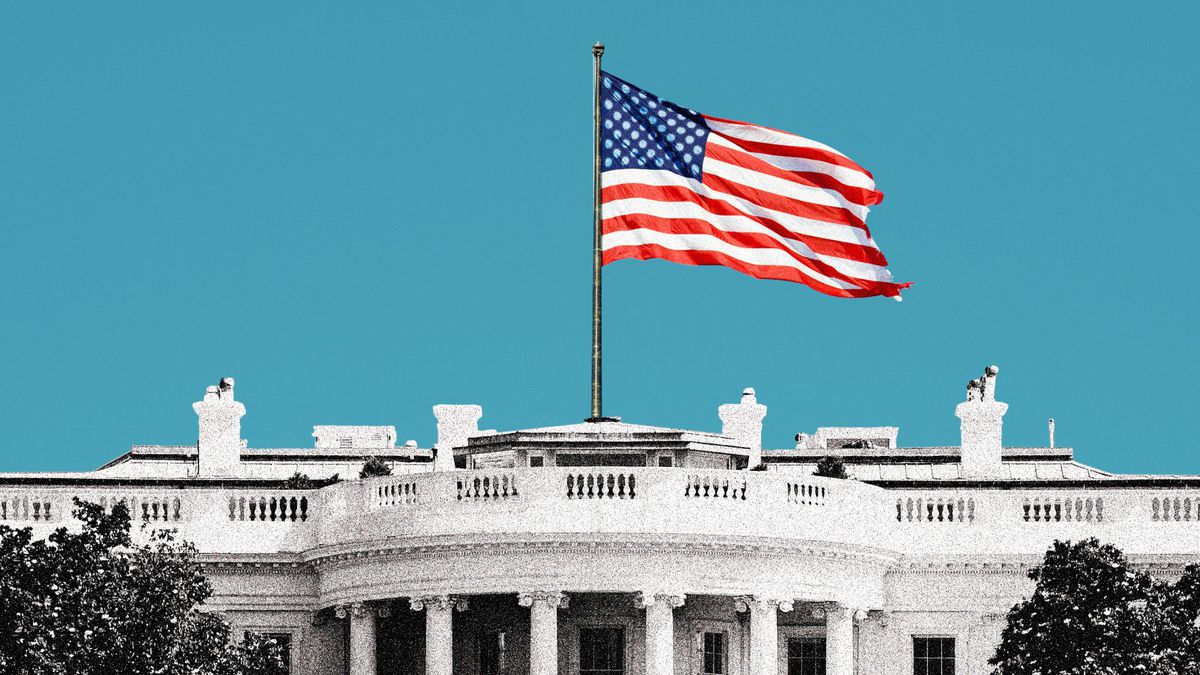You'll Soon Be Able to Get a Free At-Home COVID Test Thanks to the White House's New Plans to Combat Omicron



The Omicron variant was first detected in the US on December 1. And in less than a month, it has surpassed the Delta variant as the most dominant variant of COVID-19 in the US. In fact, the Omicron variant made up 73% of the country's new COVID-19 infections last week, according to the Centers for Disease Control and Prevention (CDC). In response to the rapid increase in numbers, the White House unveiled today new plans to help keep the public safe and prevent hospitals from being overrun by Omicron cases.
The White House's actions aim to "mitigate the impact unvaccinated individuals have on our health care system, while increasing access to free testing and getting more shots in arms to keep people safe and our schools and economy open," a statement from the Biden Administration says. President Joseph Biden also spoke about the actions in a live announcement this afternoon. Here's what you can expect under the new plan:
More support for hospitals
There are a lot of different elements to the White House's new plan, but one of the main goals is to ensure that hospitals across the country have enough staff, beds, and supplies they need to deal with rising Omicron hospitalizations.
That will involve:
- Mobilizing 1,000 troops with medical experience to deploy to hospitals that are strained by COVID-19
- Deploying federal emergency response teams of medical personnel to different states in need
- Activating FEMA response teams to help with states and hospitals that are at capacity and expand their capabilities
- Adding more beds for hospitals that need them
- Deploying hundreds of ambulances and emergency medical teams to get patients to beds
- Releasing supplies like N-95 masks, gloves, gowns, and ventilators from the national stockpile when states need them
"Hospitals in many parts of the country continue to be stressed," William Schaffner, MD, an infectious disease specialist and professor at the Vanderbilt University School of Medicine, tells Health. "Getting new hospital beds is much easier than staffing them. You need skilled personnel to do that. Anything we can do to help hospitals out of going into what is likely to be a hard winter with both COVID and influenza is important."
Increased access to free COVID-19 testing
Getting tested for COVID-19 can be tricky: Lines at some testing centers are long, and at-home tests tend to quickly sell out in drugstores and online. Currently, there are 20,000 free testing sites across the US, according to the Administration, but there are plans to increase availability. Those plans include:
- Having more federal testing sites, including in areas that are facing high demands, like New York City
- Distributing half a billion free at-home rapid tests, starting in January. (To receive yours, you'll need to sign up online. But that website is still in the works.)
- Using the Defense Production Act and other authorities to make sure the US is producing as many tests as quickly as possible
Increasing access to free testing "will take a little time, but it is a good idea," Dr. Schaffner says. "It will add an additional intervention that we can use to help control COVID. It will help bring people back to the office and, on a personal level, will allow people getting together for gatherings to test on the day they're gathering."
An attempt to vaccinate more people
There are currently 90,000 locations nationwide where people can get vaccinated against COVID-19—and there are plans for more:
- Adding new FEMA-run pop-up vaccination clinics across the country, particularly in areas of high demand
- Deploying hundreds of federal vaccinators across 12 states
- Allowing pharmacists and pharmacy interns to give a wider set of vaccinations across state lines
- Helping pharmacies add appointments and capacity across their networks by hiring additional staff
Currently, 65% of the eligible US population has been fully vaccinated against COVID-19, per data from the CDC. Just a little over 32% of those aged 18 and up have received a booster dose of the COVID-19 vaccine, CDC data show.
"Increased access to vaccines will certainly help people who were on the fence or inconvenienced have ready access," Dr. Schaffner says. But, he points out, "there is still a large group of people that are withholding themselves from vaccines for much more baked-in reasons." Increasing access alone, he says, is unlikely to persuade them to get vaccinated.
President Biden made appeals to those who are still unvaccinated in his address to the country on December 21, pleading for an end to vaccine misinformation and pointing out that the virus often has worse effects on the unvaccinated.
Source: Read Full Article